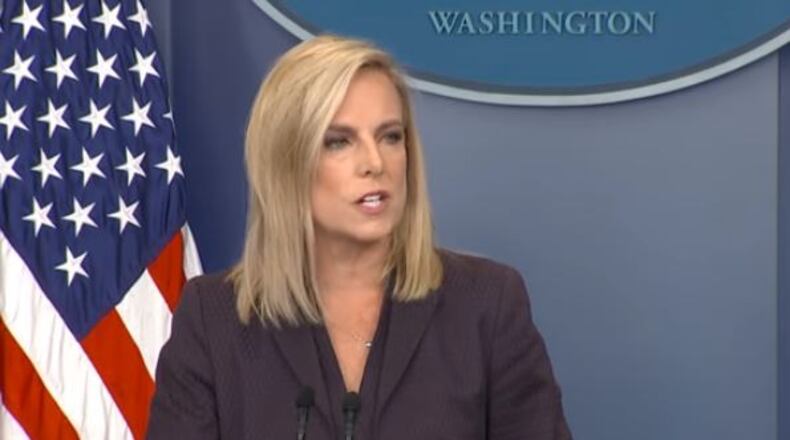As President Donald Trump accepted the resignation on Sunday of Homeland Security Secretary Kirstjen Nielsen, his move to appoint the head of the Border Patrol as the acting chief of the Department of Homeland Security immediately raised questions as to its legality, as federal law indicated instead that the third-ranking official at DHS would actually be in charge.
Legal experts focused on the details of 6 U.S.C. §113(g), which says the Deputy Secretary of Homeland Security would take over for Nielsen - that post is currently vacant, so the authority would drop down to the third most senior official, Under Secretary of Management Claire Grady.
President Trump tweeted on Sunday though that he had a different plan.
"I am pleased to announce that Kevin McAleenan, the current U.S. Customs and Border Protection Commissioner, will become Acting Secretary," the President said.
But that immediately drew questions in the legal community.
Originally, after meeting with President Trump, Nielsen resigned effective immediately on Sunday - but by Sunday night, she announced that she had changed her mind, and would stay in the job of DHS Secretary until Wednesday.
"I have agreed to stay on as Secretary through Wednesday, April 10th to assist with an orderly transition," Nielsen wrote, a move which could give her the ability to help alter the chain of succession inside DHS.
As for McAleenan, the Border Patrol chief is well known on Capitol Hill.
No matter the temporary leadership at DHS, the ultimate nominee for President Trump to run the Homeland Security Department is certain to face a fractious confirmation hearing in the U.S. Senate in coming months, as it is certain to become a battleground over the President's immigration policies.
About the Author
The Latest
Featured



